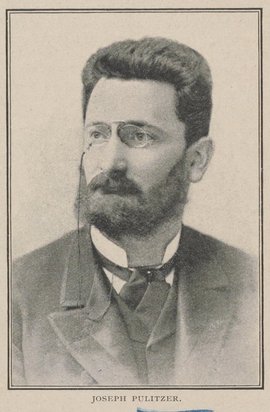The prize was created by Joseph Pulitzer's will, in which he gave money to Columbia University for the prize and to establish a school of journalism, and to administer the prize. The prize was allocated $250,000, and it was specified that the awards should be awarded as follows, "Four awards in journalism, four in letters and drama, one in education, and four traveling scholarships."
The prize winners are selected out of entries that must be accompanied by a $50 entry fee for each category to be considered (at least one, at most two). There are now 21 award categories, with 20 "juries," one for each category (the two photography awards are selected by the same jury." A total of 103 judges are selected each year. The jury reviews the nominees and picks 3 to nominate, from which the board then picks one. The board can bypass the nominated works and replace it with one of their own choosing, (by a 75% vote, rather than the usual majority vote) and can also select no winner.
The awards are now announced in April.
The first winners were:
- Editorial Writing: No Author named - The New York Tribune, for an editorial regarding the first anniversary of the sinking of the Lusitania.
- Public Service: No Award
- Reporting: (not given after 1947) Herbert Bayard Swope - New York World, for a series of articles in October and November 1916 entitled, "Inside the German Empire"
- Biography or Autobiography: Laura E. Richards and Maude Howe Elliott assisted by Florence Howe Hall, Julia Ward Howe
- Drama: No Award
- History: His Excellency J.J. Jusserand, With Americans of Past and Present Days
- Novel: No Award




 RSS Feed
RSS Feed